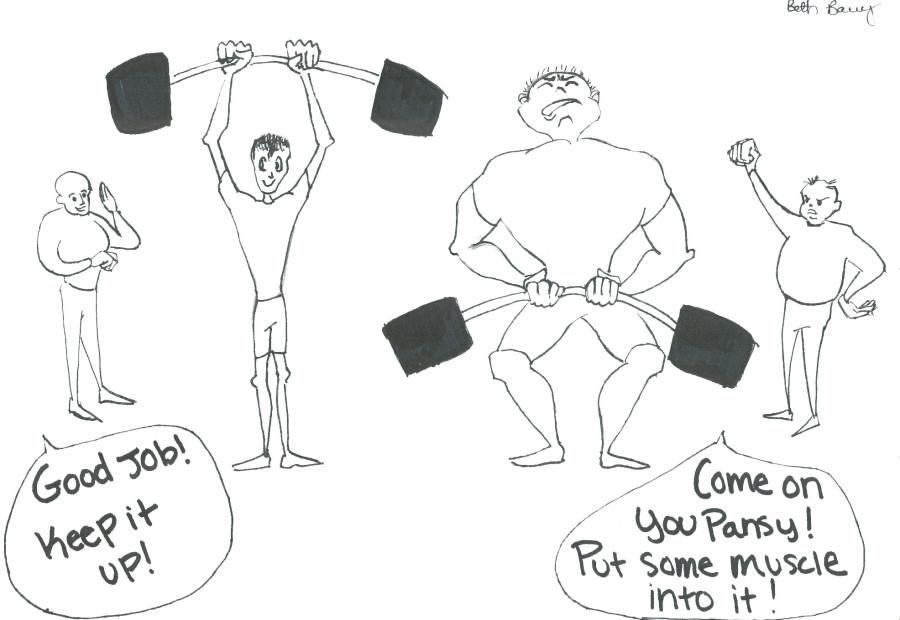All coaches dream of having an amazing team that can win it all. Unfortunately, some coaches take this too far, damaging not only their athletes, but also the coaches themselves.
A successful team is not only built with skill, but also with the team’s mental state. There is a fine line between pushing athletes to their mental limits and damaging their self-esteem. A good coach knows his or her team and understands where that line is.
The “ideal coach” needs to fulfill the characteristics of a teacher, a manager, a trainer, a strategist, a player, and a parent, according to an article on the Team USA website.
Coaches need to know it is their responsibility to care for their players as much as they want to win. A successful coach has a team that cares about him or her as much as he or she cares about the team.
A coach who is too focused on winning primarily affects the athletes. Being too focused on winning damages a player’s self-esteem and athletic performance.
“It takes away [from] the fun of being on a team and makes you feel that if you don’t win, you’re letting your team down,” Natalie Weith, freshman cross country runner, said. “I think [coaches] should have a happy medium between wanting to do [well] and wanting to have fun doing your sport.”
As a coach pushes athletes past their breaking points, the mental health of the students begins to recede, leaving them questioning their abilities and position on the sport. If a player is too afraid of getting yelled at by a coach, that athlete might not perform as well as he or she can, contradicting the coach’s initial intentions.
“Bullied kids think there is something the matter with them. This deflates them and creates a lack of comfort and security in sports,” said Michael Edger in an article on Sports Psychology Today website. “Bullying can hurt an athlete’s confidence–in and out of sports. When athletes are being bullied, and singled out by coaches, they begin to have doubts about their ability to perform, which cause them to question their role in sports.”
Besides affecting the athletes, the coaches’ attitudes can also damage the program as a whole.
“If the coach is not good at what they are coaching, they’re mean, or they are all about winning, then less people would try out [the following year],” Weith said.
Coaches usually do not realize when they overdo this restriction, but once their team begins to decrease in confidence or skill, the coaches should start noticing signs. It is not always the players’ fault for not winning, the coaches must take a piece of the blame as well.
By having a better attitude with the sport, coaches are able to relax more and have their player take their future in the sport into their own hands.
“[If a coach has a better attitude], the team would probably be a lot of fun and the sport would also be a lot less stressful for the athletes and coaches,” Weith said. “Coach Silverman is very laid back and is all about having fun, but we all know when to have fun and when to take the running seriously, and [that is why] we have a very good team.”
Coaches should know their team and push them to be better, but also know when what they are doing could be damaging their team in anyway. A coach who can achieve this will have no problem creating an amazing team.

